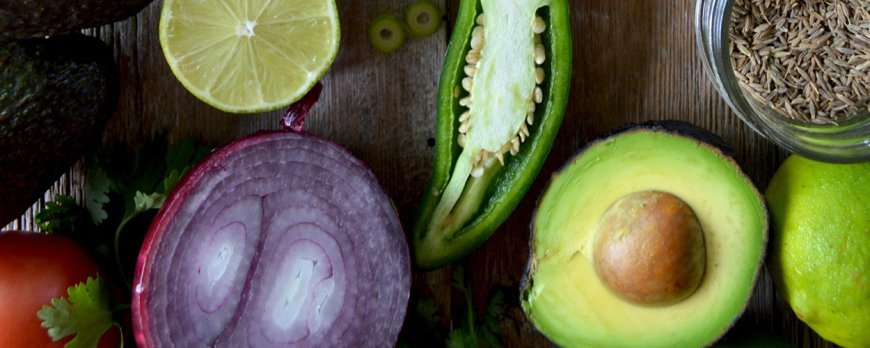Can you live longer by eating less?
Uncover the fascinating link between diet and longevity. Can you live longer by eating less? Explore science-backed facts and findings with us.

Can You Live Longer by Eating Less?
In recent years, the idea that calorie restriction may lead to a longer, healthier life has gained significant attention. This concept is based on the idea that by reducing calorie intake, the body's metabolic processes slow down, potentially leading to a reduction in age-related diseases and an increase in lifespan. However, the science of calorie restriction and its potential impact on longevity is still evolving.
In this article, we will explore the intriguing connection between diet and longevity. We will delve into the question of whether eating less can actually lead to a longer life, investigating scientific evidence and theories on the topic.
Key Takeaways:
- Calorie restriction has been linked to potential benefits for longevity.
- Reducing calorie intake may impact cellular processes, metabolic health, and disease prevention.
- Animal studies have provided insights into the possible effects of calorie restriction on lifespan.
- Genetic factors may influence an individual's response to calorie restriction.
- Other lifestyle factors, such as regular physical activity and stress management, may also impact longevity.
The Science of Calorie Restriction
Calorie restriction (CR) is the practice of reducing calorie intake while maintaining adequate levels of essential nutrients. This dietary approach has been extensively studied for its potential benefits in promoting longevity and reducing the risk of age-related diseases.
The Benefits of Calorie Restriction
Studies have shown that reducing calorie intake can lead to a range of positive health effects, including:
- Increased lifespan
- Reduced risk of chronic diseases such as heart disease, diabetes, and cancer
- Improved metabolic health
- Enhanced cognitive function and memory
- Delayed onset of age-related conditions such as Alzheimer's disease
The mechanisms through which CR may produce these beneficial effects are complex and not yet fully understood. However, research has suggested that CR may trigger a range of cellular processes that promote healthy aging and disease prevention.
The most well-established effect of CR is an increase in lifespan. Studies in rodents have consistently demonstrated that reducing calorie intake can lead to a significant extension of lifespan, sometimes by as much as 50%. Although the evidence for human longevity is less clear, some studies have suggested that moderate calorie restriction may lead to increased lifespan.

Reduced Calorie Intake and Longevity
One of the key ways in which CR may promote longevity is by reducing oxidative stress. Oxidative stress occurs when there is an imbalance between free radicals and antioxidants in the body, leading to cellular damage and aging. By reducing calorie intake, the production of free radicals is reduced, helping to maintain healthy cellular function and prevent age-related diseases.
Another way in which CR may promote longevity is by enhancing cellular repair mechanisms. Some studies have suggested that reducing calorie intake can activate genes associated with DNA repair and cellular maintenance, allowing cells to function more efficiently and reducing the risk of disease.
Finally, CR may promote longevity by reducing inflammation in the body. Chronic inflammation has been linked to a range of age-related diseases, including heart disease, diabetes, and cancer. By reducing calorie intake, the body's inflammatory response may be dampened, reducing the risk of these diseases.
Overall, the evidence suggests that reducing calorie intake may have a range of positive effects on health and longevity. However, it is important to approach CR with caution and ensure that adequate levels of essential nutrients are maintained.
Exploring the Link Between Food and Longevity
The relationship between food and longevity is a complex and fascinating one. While calorie restriction has been shown to extend lifespan in certain studies, the types of foods we consume may also play a role in promoting a longer, healthier life.
Research suggests that a diet rich in whole, nutrient-dense foods may be beneficial for longevity. Specifically, the Mediterranean diet, which emphasizes fruits, vegetables, whole grains, and healthy fats, has been associated with a lower risk of chronic diseases and longer lifespan.
On the other hand, a diet high in processed foods, sugar, and unhealthy fats may have negative effects on health and lifespan. A restricted diet that limits these types of foods may be beneficial for promoting longevity.
Furthermore, maintaining a balanced and varied diet is crucial for obtaining all the necessary nutrients for overall health and wellbeing. While calorie restriction may promote longevity, it is important to ensure that the restricted diet still includes sufficient amounts of essential vitamins, minerals, and macronutrients.
- In summary, consuming a restricted diet that is rich in nutrient-dense, whole foods may be beneficial for promoting longevity and a healthy lifespan.
- Processed foods, sugar, and unhealthy fats should be limited in the diet for optimal health and longevity.
- A balanced and varied diet is crucial for obtaining all necessary nutrients for overall health and wellbeing.
The Effects of Eating Less on Longevity
Eating less has been a subject of interest in the field of longevity research, with many studies suggesting that reducing calorie intake may lead to a longer life. One reason for this is that calorie restriction has been shown to impact cellular processes in ways that promote longevity.
For example, calorie restriction has been found to increase the activity of certain enzymes involved in DNA repair and cellular stress response. This can help prevent damage to cells and slow down the aging process.
In addition to cellular repair, calorie restriction has also been shown to improve metabolic health. By reducing the amount of energy the body takes in, calorie restriction can help prevent conditions such as obesity, type 2 diabetes, and cardiovascular disease. These conditions are known risk factors for a shorter lifespan, so by reducing their occurrence, calorie restriction may contribute to a longer life.
While calorie restriction does not necessarily mean eating less food overall, it often involves consuming smaller portions or reducing overall calorie intake. This can result in weight loss, another factor that has been linked to longer lifespan in studies. However, it is important to note that severe calorie restriction can have negative effects on health, such as muscle loss and nutrient deficiencies. Therefore, it is important to approach calorie reduction with balance and moderation.
Overall, the effects of eating less on longevity are still being researched, but evidence suggests that there may be benefits to reducing calorie intake in promoting a longer, healthier life. By combining calorie restriction with a balanced, nutrient-rich diet, individuals can potentially increase their lifespan while still meeting their nutritional needs.
Calorie Restriction and Longevity in Animal Studies
Animal studies have played a crucial role in understanding the potential benefits of calorie restriction for longevity. Research in various animal models, including mice, rats, and monkeys, has consistently shown that reducing calorie intake can lead to increased lifespan and improved health outcomes.
One study published in the journal Nature found that mice placed on a calorie-restricted diet lived up to 40% longer than their control group counterparts. Similarly, a study on rats found that those on a restricted diet had lower rates of cancer and other age-related diseases.
Studies on monkeys have also yielded promising results. In one study, monkeys on a calorie-restricted diet experienced a delay in age-related diseases, such as diabetes and cancer, and had better insulin sensitivity compared to the control group.
The benefits of calorie restriction in animal studies are thought to result from a variety of mechanisms, including improved metabolic health, reduced oxidative stress, and enhanced cellular repair processes. These mechanisms may play a role in slowing the aging process and promoting a longer, healthier life.
While the findings from animal studies are important for understanding the potential impact of calorie restriction on longevity, it is important to note that these studies do not necessarily translate directly to humans. However, they do provide valuable insight into the underlying biological mechanisms through which calorie restriction may exert its effects on lifespan.
Overall, the results of animal studies provide compelling evidence for the potential benefits of calorie restriction for promoting longevity. However, further research is needed to fully understand the implications of calorie restriction for human health and lifespan.
The Role of Genetics in Longevity and Calorie Restriction
While it is clear that calorie restriction can lead to an increase in lifespan in various species, the degree to which it can produce similar effects in humans remains uncertain and is likely to be influenced by genetic factors.
Studies in both mice and humans have suggested that certain genetic variants may be associated with a greater response to calorie restriction in terms of lifespan extension. For example, some variants of the SIRT1 gene have been found to enhance the lifespan-extending effects of calorie restriction in mice.
However, the relationship between genetics and the impact of calorie restriction on longevity is complex and not fully understood. It is likely that multiple genes, as well as various environmental factors, interact to produce an individual's response to calorie restriction.
Despite this complexity, there is growing interest in the use of genetic testing to guide personalized dietary recommendations for promoting longevity. By identifying specific genetic variants associated with an enhanced response to calorie restriction, individuals may be able to tailor their dietary choices to optimize their chances of living a longer, healthier life.

Potential Mechanisms Behind Calorie Restriction and Longevity
While the precise mechanisms underlying the longevity-promoting effects of calorie restriction are still being explored, several potential mechanisms have been proposed.
Reducing Oxidative Stress
One hypothesis suggests that calorie restriction may reduce oxidative stress in the body, a process that occurs when there is an imbalance between antioxidants and harmful reactive molecules known as free radicals. Oxidative stress is believed to contribute to aging and age-related diseases, such as cancer and neurodegenerative disorders.
By reducing calorie intake, the body may produce fewer free radicals, thereby lowering the overall level of oxidative stress in the body.
Improving Cellular Repair Mechanisms
Another possible mechanism is that calorie restriction may enhance the body's cellular repair mechanisms. When the body is in a calorie-restricted state, it may allocate more energy towards repairing damaged cells and tissues, rather than simply producing new ones.
Several studies have suggested that calorie restriction can improve the quality of cellular repair mechanisms, potentially slowing the aging process and preventing age-related diseases.
Modulating Hormonal Signaling
Finally, it has been proposed that calorie restriction may impact hormonal signaling pathways in the body. Calorie restriction has been shown to affect insulin-like growth factor 1 (IGF-1), a hormone that is involved in processes such as growth, development, and aging.
Some research suggests that reducing IGF-1 levels may be linked to longer lifespan in animal models. Calorie restriction may also affect other signaling pathways, such as the mTOR pathway, which is involved in nutrient sensing and cell growth.
While more research is needed to fully understand the mechanisms behind the relationship between calorie restriction and longevity, these potential mechanisms suggest that there may be significant benefits to reducing calorie intake for promoting a longer, healthier life.
Practical Considerations for Calorie Restriction
Reducing calorie intake can be a challenging task, especially if you're accustomed to eating a certain amount of food each day. Here are some practical tips to help you implement calorie restriction as part of a longevity-promoting diet:
- Mindful Eating: Take the time to savor your food and eat with intention, avoiding distractions such as TV or technology that can interfere with your awareness of how much you're eating.
- Portion Control: Use smaller plates or bowls to help control portion sizes. Keep in mind that reducing calorie intake doesn't necessarily mean feeling hungry; with careful attention to portion size, you can still feel satisfied after meals.
- Nutrient Optimization: Focus on consuming nutrient-dense, whole foods that provide your body with essential vitamins and minerals. These foods can help you feel fuller for longer periods of time, reducing the temptation to snack or overeat.
It's important to note that when implementing calorie restriction, it's crucial to maintain balanced nutrition and avoid severe calorie restriction. Cutting calories too drastically can actually have negative effects on health and longevity. Instead, aim for a moderate reduction in calorie intake over time, allowing your body to adjust gradually.
By implementing these practical strategies for calorie restriction, you can work towards optimizing your lifespan and promoting a healthier, happier life.
Potential Drawbacks and Risks of Calorie Restriction
While there may be potential benefits to reducing calorie intake for promoting longevity, it is important to consider potential drawbacks and risks associated with this dietary approach.
First and foremost, severe calorie restriction can lead to malnutrition and associated health risks. It is important to ensure that a reduced calorie diet still provides essential nutrients and meets individual nutritional needs.
Additionally, some individuals may experience negative psychological effects from calorie restriction, such as increased feelings of anxiety or depression. It is important to approach any dietary changes with a healthy mindset and seek support from healthcare professionals or a registered dietitian if needed.
Furthermore, calorie restriction may not be appropriate for everyone, particularly those with specific medical conditions or nutritional needs. It is important to consult with a healthcare professional before making significant dietary changes.
In summary, while calorie restriction may hold potential benefits for promoting longevity, it is important to approach any dietary changes with caution and consideration of individual needs and goals.
Beyond Calorie Restriction: Other Factors Influencing Longevity
While calorie restriction has shown promise in promoting longevity, it is important to remember that it is just one piece of the puzzle. Here are some other lifestyle factors that may also play a role in extending lifespan:
- Regular physical activity: Exercise has been shown to increase lifespan by reducing the risk of chronic diseases and maintaining physical health.
- Stress management: Chronic stress has been linked to a range of health problems, including heart disease and depression. Finding healthy ways to manage stress, such as through meditation or spending time in nature, may help support a longer life.
- Social connections: Research suggests that maintaining strong social connections may help increase lifespan by providing emotional support and reducing feelings of loneliness and isolation.
- Healthy habits: In addition to a nutrient-dense diet, other healthy habits such as getting enough sleep, avoiding smoking and excessive drinking, and staying up to date on recommended health screenings can also help promote a longer, healthier life.
While calorie restriction may hold promise in promoting longevity, it is important to remember that there is no one-size-fits-all approach to living a long, healthy life. By combining a balanced, nutrient-rich diet with other healthy lifestyle choices, we can optimize our chances of living a fulfilling life well into our golden years.

Conclusion
In conclusion, the question of whether eating less can contribute to a longer life is a complex one. However, the science of calorie restriction and its impact on longevity is promising. Research suggests that reducing calorie intake can lead to a variety of health benefits, including a longer lifespan.
It is important to note, however, that there are potential drawbacks and risks associated with severe calorie restriction. It is crucial to maintain a balanced, nutrient-rich diet and consider individual needs and goals when making any dietary changes.
While calorie restriction may be a useful tool for promoting longevity, it is only one piece of the puzzle. Other healthy lifestyle factors, such as regular physical activity, stress management, and social connections, also play a crucial role in maintaining overall health and wellbeing.
Overall, by combining a mindful, nutrient-rich diet with other healthy habits, we can strive to optimize our chances of living a longer, healthier life.
Keywords: Can you live longer by eating less?, eating less for longevity, food and longevity, lifespan and restricted diet, impact of calorie reduction on lifespan.
FAQ
Can you live longer by eating less?
While the science of calorie restriction and its impact on longevity is still evolving, evidence suggests there may be potential benefits to reducing calorie intake for promoting a longer, healthier life.
What are the benefits of calorie restriction?
Calorie restriction has been linked to positive effects on lifespan, cellular processes, metabolic health, and disease prevention.
Is there a specific type of food that can promote longevity?
Consuming nutrient-dense, whole foods as part of a restricted diet has been associated with potential benefits for lifespan and overall health.
How does eating less affect longevity?
Eating less may impact cellular processes, metabolic health, and disease prevention, ultimately contributing to a longer lifespan.
What do animal studies reveal about calorie restriction and longevity?
Animal studies have shown promising results regarding the potential effects of calorie restriction on longevity.
Does genetics play a role in the relationship between calorie restriction and longevity?
Genetic factors may influence an individual's response to calorie restriction and the effects it has on their lifespan.
What are the potential mechanisms behind calorie restriction and longevity?
Concepts such as oxidative stress, cellular repair, and hormonal signaling have been proposed to play a role in the longevity-promoting effects of restricted calorie intake.
How can one practically implement calorie restriction for longevity?
Strategies such as mindful eating, portion control, and nutrient optimization can help individuals adopt a reduced calorie diet while still meeting their nutritional needs.
Are there any drawbacks or risks associated with calorie restriction for longevity?
Severe calorie restriction and the importance of maintaining a balanced, nutrient-rich diet should be considered to avoid potential negative effects.
What other factors besides calorie restriction influence longevity?
Regular physical activity, stress management, social connections, and overall healthy habits can also impact longevity.

































































































































